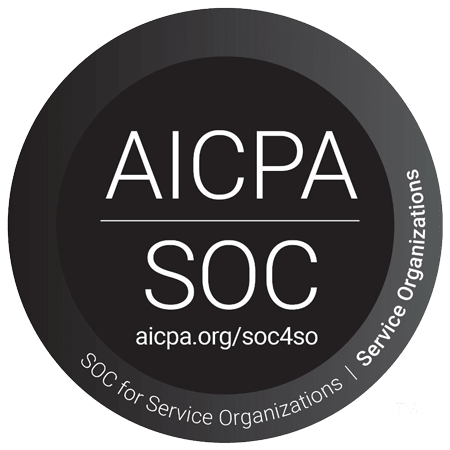May 23, 2024
New Research Will Be Presented at 2024 ASCO Annual Meeting
Courtesy of American Society of Clinical Oncology Annual Meeting
ASCO Perspective Quote:“Given known gaps in cancer screening in minority populations living in the inner city, this program has the promise to improve early cancer detection and decrease colon cancer disparities. The initiative leverages conversational artificial intelligence to optimize outreach capacity to vulnerable populations and delivers on the promise of technology to facilitate better, more efficient and equitable health care.” – Fumiko Chino, MD, Radiation Oncologist at Memorial Sloan Kettering Cancer Center.
Study at-a-Glance
- Focus | Artificial intelligence-based patient navigator for colonoscopy appointment outreach in underserved communities.
- Population | 2,400 patients in New York City
- Main Takeaway | Artificial intelligence-based patient navigator demonstrated potential in re-engaging people in the screening process in underserved communities who have missed or avoided colonoscopy appointments.
- Significance
- In underserved communities of color, barriers to colorectal cancer screening can contribute to disparities due to late-stage diagnosis and poor outcomes.
- Despite active outreach by skilled patient navigators at a cancer center in New York City serving ethnic minorities and a disadvantaged population, 59% of patients scheduled for colonoscopy screening appointments did not complete them in 2022.
- This quality improvement project was able to help fill an important gap in re-engaging patients in care when staff shortages and heavy workloads have reduced the ability to conduct varied and multiple outreach efforts needed to connect with people who are struggling with barriers to care.
ALEXANDRIA, Va. — An artificial intelligence-based patient navigator tool demonstrated improved potential in helping to overcome patient attrition that can lead to colon cancer disparities, nearly doubling the rate of completed colonoscopies for people who did not show for their initial appointment. The research will be presented at the 2024 American Society of Clinical Oncology (ASCO) Annual Meeting, taking place May 31-June 4 in Chicago, Illinois.
About the Study
“In a time when our health care system and workforce have not fully recovered from the ravages of the pandemic and cancer disparities continue to loom large, it is critical to identify effective and efficient ways to optimize patient care without placing additional burden on the system or staff. Our quality improvement project demonstrates the potential that artificial intelligence-based virtual navigation can have in meeting these criteria while promoting engagement in cancer screening in underserved populations who experience a disproportionate cancer burden in morbidity and mortality,” said lead study author Alyson Moadel, PhD, Deputy Director of Community Engagement & Cancer Health Equity, Founding Director, BOLD Psychosocial Oncology Program at the Montefiore Einstein Comprehensive Cancer Center.
This project took place at the Montefiore Einstein Comprehensive Cancer Center in the Bronx, New York, in which the vast majority of people are from communities of color and low-income households, with many born outside the United States. The study utilized Eleanor, a virtual patient navigator that engaged in personalized, AI conversation, between April and December 2023 to target 2,400 people who had either cancelled or did not show up for their scheduled colonoscopy appointment in 2022 or 2023. Sixty-six percent of patients included in the study were female; 41% were Hispanic and 33% were Black; 73% spoke English and 25% spoke Spanish, 32% were unemployed, and 43% were married. Eleanor called patients to discuss rescheduling, assessed barriers to uptake, offered live transfers to clinical staff to reschedule, and provided procedure preparation reminder calls.
Key Findings
- Patients most likely to be in the quality improvement study due to having cancelled or not shown for their appointment were more likely to be single/divorced/widowed, English speaking, disabled/unemployed vs employed/retired, and younger than those adherent with screening.
- During the study, 57% of people engaged with Eleanor, with 58% of those who engaged with the AI, or 33% overall, accepting the live transfer to a human patient navigator to reschedule their procedure. The rate of completed colonoscopies for people who did not show for their initial appointment nearly doubled from 10% to 19% after the initiation of Eleanor. Overall patient volume increased by 36%.
- Over 50% of participants reported at least two barriers to screening: top barriers included transportation (38%), lack of perceived need (36%), time (36%), absence of physician prompting 33%), medical mistrust (32%), concerns about findings from the screening (28%), and cost (27%). Greater numbers of barriers predicted actionable engagement, with those who mainly spoke Spanish, those declining to identify their race, and those unemployed/retired reporting up to twice the number of barriers.
- While patients with barriers of cost and fear of the procedure and its findings were less likely to complete colonoscopy, those who were unemployed/disabled were most likely to accept the live transfer. and those who accepted the transfer were 25% more likely to complete.
- According to the authors, these findings demonstrate that Eleanor was well-received by a diverse and underserved population of both English and Spanish speakers.
Next Steps
The researchers are currently measuring Eleanor’s impact in a number of additional areas:
- Completion of missed screening colonoscopies as well as inclusion of 3- and 7-day reminder calls regarding medication pick-up and prep instructions that are needed prior to a colonoscopy. The AI system can coordinate medication pick-up, deliver pre-care instructions, and analyze barriers to care assessments.
- The authors are examining the potential for Eleanor to assist with the screenings for both lung and breast cancer.
- Measuring Eleanor’s impact on patient navigator burden and satisfaction, patient satisfaction, and cost of care.
- Examining prevalence, patterns, and predictors of barriers to cancer screening across various cancer screening programs.
This study was funded by internal resources dedicated to quality improvement at the Montefiore Einstein Comprehensive Cancer Center.
View the full embargoed abstract: [link]
View author disclosures [link]
View the News Planning Team disclosures [link]
ATTRIBUTION TO THE AMERICAN SOCIETY OF CLINICAL ONCOLOGY ANNUAL MEETING IS REQUESTED IN ALL COVERAGE.

